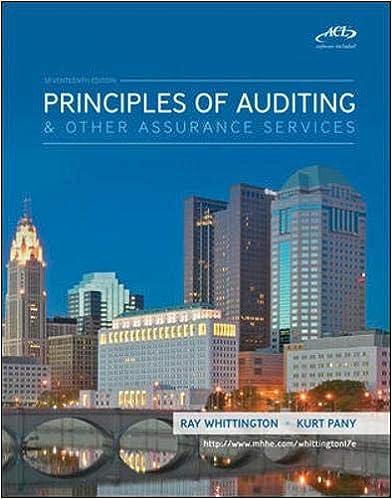Answered step by step
Verified Expert Solution
Question
1 Approved Answer
PS.2A (LO 1, 2, 4) AP Cotton Company uses the percentage of sales approach to record bad debt ex- pense for its monthly financial statements

PS.2A (LO 1, 2, 4) AP Cotton Company uses the percentage of sales approach to record bad debt ex- pense for its monthly financial statements and the percentage of receivables approach for its year-end financial statements. Cotton Company has an October 31 fiscal year end, closes temporary accounts an- nually, and uses a perpetual inventory system. On August 31, 2021, after completing its month-end adjustments, it had accounts receivable of $74.500, a credit balance of $2.980 in Allowance for Doubtful Accounts, and bad debt expense of $9,860. In September and October, the following occurred: September 1. Sold S56.300 of merchandise on account; the cost of the merchandise was $25.335. 2. A total of $900 of the merchandise sold on account was returned. These customers were issued credit memos. The cost of the merchandise was $400 and it was returned to inventory. 3. Collected $59.200 cash on account from customers. 4. Interest charges of $745 were charged to outstanding accounts receivable. 5. As part of the month-end adjusting entries, recorded bad debt expense of 2% of credit sales for the month. October 1. Credit sales in the month were $63,900: the cost of the merchandise was $78.709. 2. Received S350 cash from a customer whose account had been written off in July 3. Collected $58,500 cash, in addition to the cash collected in transaction 2. above from customers on account. 4. Wrote off $7,500 of accounts receivable as uncollectible. 5. Interest charges of $710 were charged to outstanding accounts receivable. 6. Recorded the year-end adjustment for bad debts. Uncollectible accounts were estimated to be 49 of accounts receivable. (Round answer to the nearest dollar.) Instructions a. For each of these transactions, indicate if the transaction has increased (+) or decreased (-) Cash, Accounts Receivable, Allowance for Doubtful Accounts, Inventory, Total Assets, and Owner's Eq- uity, and by how much. If the item is not changed, write NE to indicate there is no effect. Use the following format, in which the first one has been done for you as an example. Accounts Receivable Allowance for Doubtful Accounts Transaction Cash Merchandise Inventory -$25,335 Total Assets Owner's Equity +$30,965 Sept. 1 NE +$56,300 NE +$30,965 b. Show how accounts receivable will appear on the October 31, 2021, balance sheet. c. What amount will be reported as bad debt expense on the income statement for the year ended October 31, 2021? Taking It Further Discuss the appropriateness of Cotton using the percentage of sales approach to es timating uncollectible accounts for its monthly financial statements and the percentage of receivables approach for its year-end financial statements. The monthly financial statements are used by Cotton's management and are not distributed to anyone outside of the company. pe 2 (LO 1.2. AAP Atb
Step by Step Solution
There are 3 Steps involved in it
Step: 1

Get Instant Access to Expert-Tailored Solutions
See step-by-step solutions with expert insights and AI powered tools for academic success
Step: 2

Step: 3

Ace Your Homework with AI
Get the answers you need in no time with our AI-driven, step-by-step assistance
Get Started


